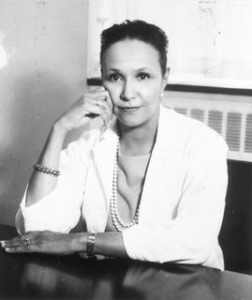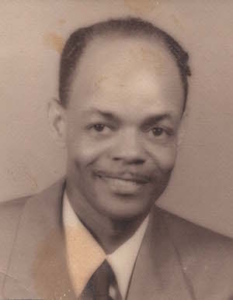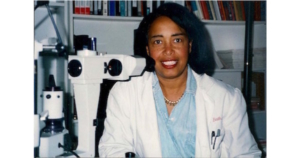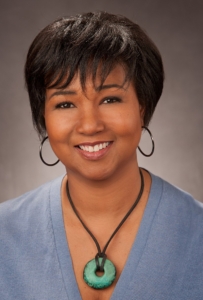In honor of Black History Month, we are featuring four black healthcare innovators and pioneers you should know about!

1. Dr. Jane Cooke Wright
The daughter of one of the first African American graduates of Harvard Medical School, Wright grew up with a keen interest in healthcare. Her father, Dr. Louis Wright, was also the first Black doctor appointed to a staff position at a municipal hospital in New York City, and in 1929, the city hired him as police surgeon — the first African American to hold that position.
After earning her medical degree, Dr. Jane Cooke Wright worked alongside her father at the Cancer Research Foundation in Harlem, which her father established in 1948. Together, father and daughter researched chemotherapy drugs that led to remissions in patients with leukemia and lymphoma.
In 1952, when her father died of tuberculosis, Wright became the head of the Cancer Research Foundation at age 33. She created an innovative technique to test the effect of drugs on cancer cells by using patient tissue rather than laboratory mice. She advanced to work as the director of cancer chemotherapy at New York University Medical Center, and she was an associate dean at New York Medical College.
The New York Cancer Society elected Wright as its first woman president in 1971. Her research helped transform chemotherapy from a last resort to a viable treatment for cancer. {site: Everydayhealth.com}

2. Otis Boykin
The inventor Otis Boykin patented 28 electronic devices during his career. He developed resistors for electronic components that made the production of televisions and computers much more affordable, but Boykin became best known for improving the pacemaker. The pacemaker uses electrical impulses to help people maintain a regular heartbeat. Boykin came up with a control unit that regulated the pacemaker with more precision. He died of heart failure in 1982. {site: Everydayhealth.com}

3. Dr. Patricia Bath
Patricia Bath was the first African American to complete an ophthalmology residency with New York University’s School of Medicine, in 1973. Two years later, the UCLA School of Medicine appointed her as the first female faculty member in its department of ophthalmology. Believing that “eyesight is a basic human right,” Dr. Bath went on to cofound the American Institute for the Prevention of Blindness.
In the early 1980s, Bath studied laser technology and saw its potential for eye surgery. In 1986, she invented the Laserphaco probe, a device and method for cataract treatments. When she patented the instrument, in 1988, she became the first African American female doctor to receive a patent for a medical invention. {site: Everydayhealth.com}

4. Mae Jemison
Dr. Mae Jemison is most famous for becoming the first Black woman astronaut to go into space, in 1992. Jemison, however, is also a trained physician who has dedicated her life to improving global health.
Jemison joined the Peace Corps in 1983 and worked as a medical officer for two years in Africa. Her work in the Peace Corps taught her about healthcare in developing countries. Later, as an astronaut, she learned about satellite telecommunications. She combined those two skill sets to form the Jemison Group, which develops telecommunications systems to improve healthcare delivery in developing countries.
Jemison says she takes inspiration from Martin Luther King Jr. in focusing on what she sees as unacceptable disparities in the quality of healthcare in the United States and third-world nations. “We talk about taking proper care of people, but we don’t do it,” she said. “We lack the commitment. Martin Luther King was about doing things. He didn’t just have a dream, he got things done.” {site: Everydayhealth.com}
To learn about even more black healthcare pioneers and, click here.
(https://www.everydayhealth.com/healthy-living/african-american-pioneers-who-changed-healthcare/)


Leave a Reply
Want to join the discussion?Feel free to contribute!